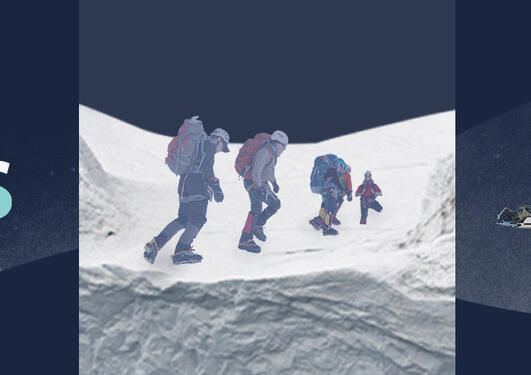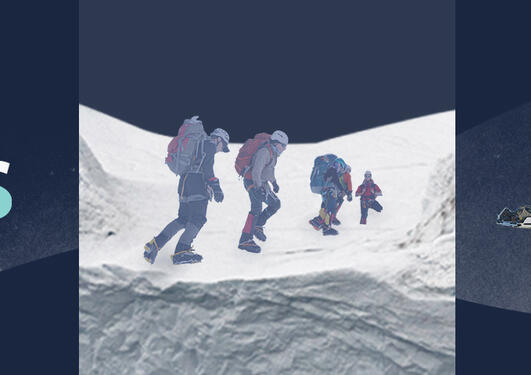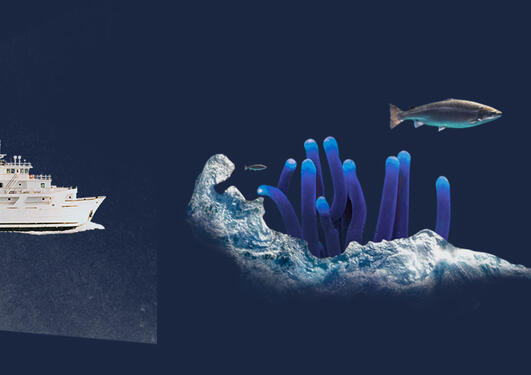Research possibilities for the MSCA SEAS postdoctoral research fellow in early human adaptation to shifting coastlines in southern Africa
The information on this page is a supplement to the complete advertisement of the position in the recruitment-portal Jobbnorge. The full advertisement of this position in Jobbnorge will be available from April 1, and linked from this webpage. Call deadline was June 12, but has been extended until September 5, 2023 for this position.
Hovedinnhold
Key information
One position | MSCA SEAS postdoctoral research fellow at Centre for Early Sapiens Behaviour (Department of Archaeology, History, Cultural Studies and Religion) |
Jobbnorge title | MSCA SEAS postdoctoral research fellow in early human adaptation to shifting coastlines in southern Africa |
Research area | Early human cognitive and behavioural adaptation to shifting coastlines in southern Africa |
Contact | Researcher Karen van Niekerk |
Mobility | For an incoming candidate (see mobility rules) |
Unit of employment | Department of Archaeology, History, Cultural Studies and Religion at University of Bergen |
Thematic area and contact
The position is connected to the theme: The effects of shifting coastlines on early human cognition and behaviour in southern Africa.
The position is open to an incoming candidate, see mobility rules.
The successful candidate will be employed at the Department of Archaeology, History, Cultural Studies and Religion and included in the SapienCE Centre of Excellence on Early Sapiens Behaviour.
Information about the Centre and research possibilities for the fellow is available below. For further details about the research and supervision possibilities please contact Researcher Karen van Niekerk.
Upon contact van Niekerk will direct interested persons to relevant potential supervisors who will be able to offer advice towards the development of a research proposal.
Research possibilities and resources
Research environment in SapienCE
The Centre for Early Sapiens Behaviour (SapienCE) is a Centre of Excellence (CoE) established in 2017, funded by the Norwegian Research Council (https://www.uib.no/en/node/137103/). The centre is built around a team of international scientists specialized in the fields of archaeology, cognitive science/neuroscience and climatology, led by Professor Christopher Stuart Henshilwood. The main objective is to understand the key emergence of modern human behaviour in Southern Africa after 100.000 years ago.
Scientific opportunities – topical frame
SapienCE focuses on the emergence of cultural innovation in Homo sapiens populations of southern Africa. Our research program focuses on rare, well preserved archaeological sites, Blombos Cave, Klipdrift Shelter and Klasies River on the southern Cape coast of South Africa that were occupied in the period between 120,000 – 50,000 years ago that contain certain ‘keys’ for unlocking the past. Current archaeological evidence, although limited, highlights the 120,000 – 50,000-year interval as a period of accelerated human cognitive, technological and social development. The fundamental causes of this critical transformation remain, however, debated. One often-proposed mechanism is the need to adapt to rapidly changing environmental conditions.
Excellent preservation of marine and terrestrial fauna at the sites allows unique insights into the dietary and cultural practises of these people across variable climatic phases. An inter-disciplinary team of scientists at the University of Bergen and international partners integrates high-resolution records of early human cultural, social, technological and subsistence behaviours with innovative geoarchaeological, climate and cognitive data and models. This holistic approach is providing ground-breaking insight into the diverse aspects of what it means to be human.
Description of project and motivation
Paleoclimatic changes in South Africa are of intense interdisciplinary interest in the context of human evolution, especially around the southern Cape region, which hosts prominent archaeological sites, including Blombos Cave, Klipdrift Shelter and Klasies River.
The sensitivity of the climate of coastal southern Africa to changes 70 ka in glacial variations in sea level and associated land extent has been investigated with a high-resolution regional climate model, downscaling from global model simulations and incorporating concurrent external forcing factors. As the coastline moves away and a coastal plain is exposed, the climate at previously coastal localities show strong continental characteristics when sea level drops. Notably, diurnal and interseasonal temperature ranges change by up to +/- 6°C, with, for example, temperature extremes of the modelled marine climate much more probable at Blombos Cave as the coastline shifts. Additionally, the coastline shift likely caused local modifications in near-surface atmospheric circulation, reducing the modelled amount of precipitation within the region by 40%. That is, the coastline position has been shown to shape the local climate around near-coastal environs.
Changes in distance of coastlines relative to archaeological sites over time give rise to many avenues of investigation, some of which are closely connected:
What are the implications of such local coastline changes on early human settlement and mobility patterns? How did early human coastal populations adapt their behaviours to these shifting coastlines? Is there evidence in the archaeological record of shifts in exploitation of marine resources or re-settlement to inland sites? What was the impact, if any, of these shifting coastal baselines on human cognition? How did early humans cope with the exposure to more extreme and variable daily and seasonal temperatures? Can the archaeological record trace local adaptations and innovations in the cultural and cognitive niches of early humans as a result of changes in the local ecological niche? What are the implications of such shifts in coastal baselines 70ka on today´s management and governance of marine resources in the context of climate change? That is, are there parallels that can be drawn from inferred evolutionary responses to shifting coastal baselines to modern cultural and cognitive adaptations needed for humans to mitigate or adapt to climate change today?
Examples of potential starting points which are required for the development of a project proposal can be found above. This project proposal will be initiated in conjunction with mentors and collaborators in the SapienCE project.
SEAS postdoctoral candidates are invited to propose research projects that fit within, and ideally integrate the 3 sub-themes of SapienCE (archaeology, climate and cognition) to the SEAS theme of marine sustainability in the modern context. The selected candidate will be encouraged to further develop and integrate their own research interests within the scope of the project.
SapienCE mentors and collaborators
Karen van Niekerk (main contact), UiB/SapienCE; Christopher Henshilwood, UiB/SapienCE/University of Witwatersrand (WITS); Carin Andersson Dahl, NORCE/SapienCE; Eystein Jansen, UiB/NORCE/SapienCE; Ozan Mert Göktürk, UiB/SapienCE; Sarah Wurz WITS/SapienCE; Mimi E. Lam, Centre for the Study of the Sciences and the Humanities, UiB; Francesco d´Errico, CNRS/University of Bordeaux, France, Department of Archaeology, History, Cultural Studies and Religion, UIB/ SapienCE.
See the full advertisement in Jobbnorge
Important general information
Please be aware
- That until April 1st 2023 (official call opening) there might be minor adjustments in the Guide for applicants and the templates needed for applying.
- That the application process is time-demanding and requires a close dialogue with name-given available faculty supervisor or contact who, close to the deadline, must sign a supervisor match declaration if an application is to be eligible.
- That some fields of research, especially within sensitive technology areas, might be enforced by Norwegian and international regulations regarding Control of the Export of Strategic Goods, Services and Technology. Candidates who by assessment of the application and attachment are seen to conflict with the criteria in these regulations might be prohibited from recruitment to UiB.



